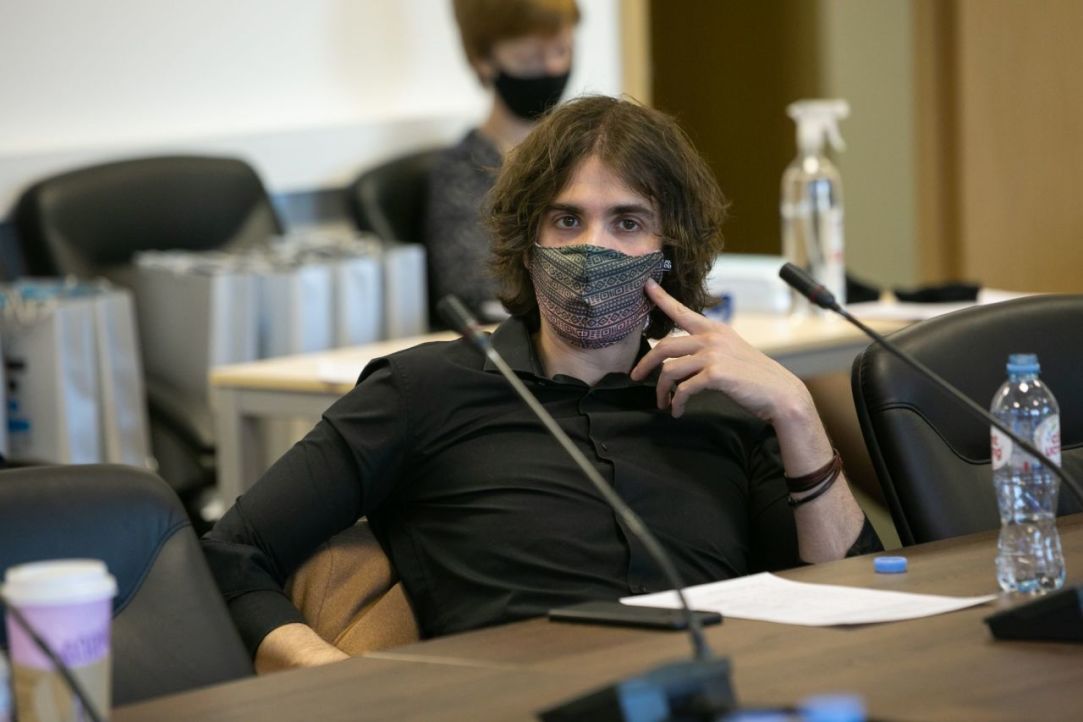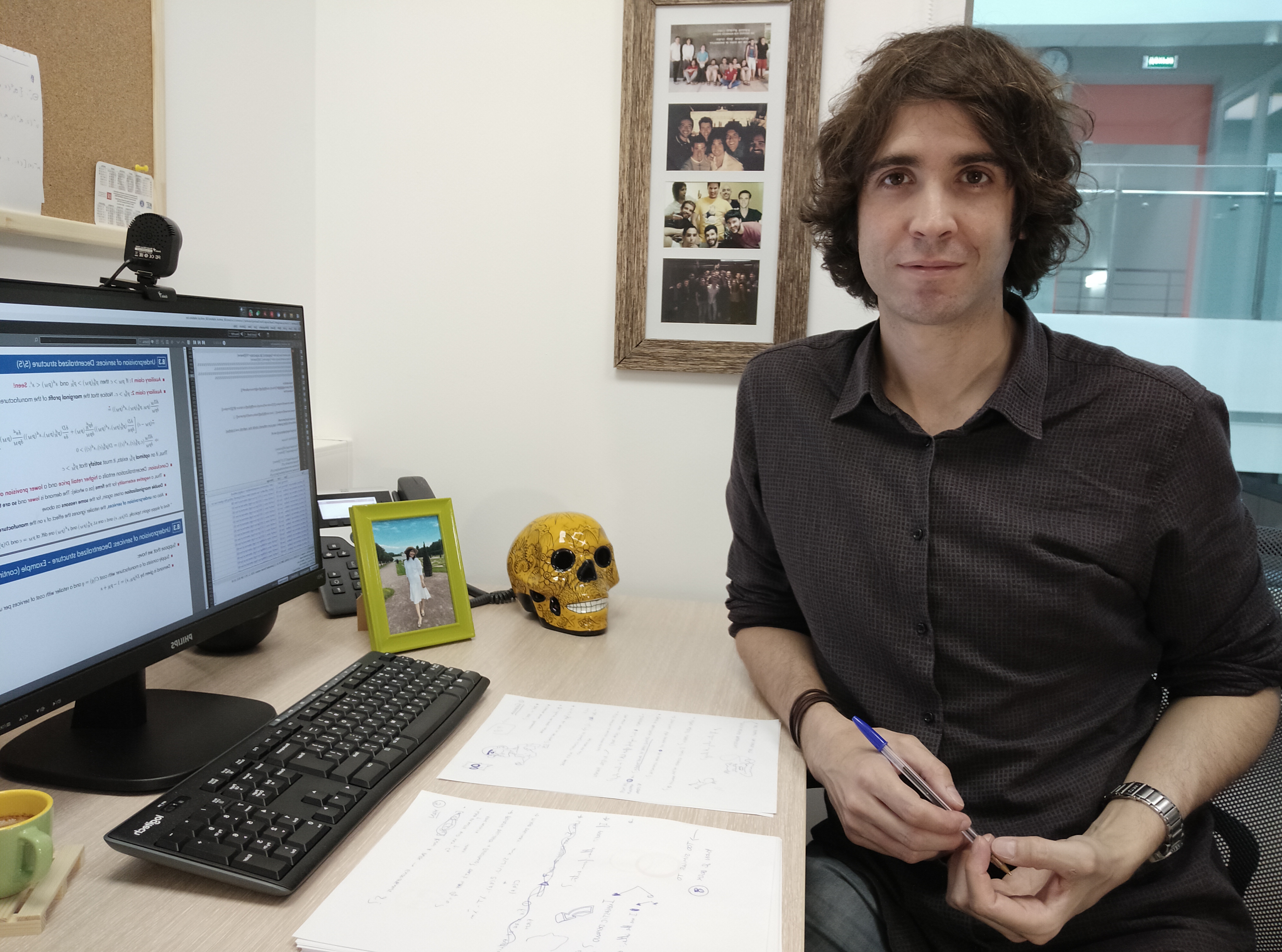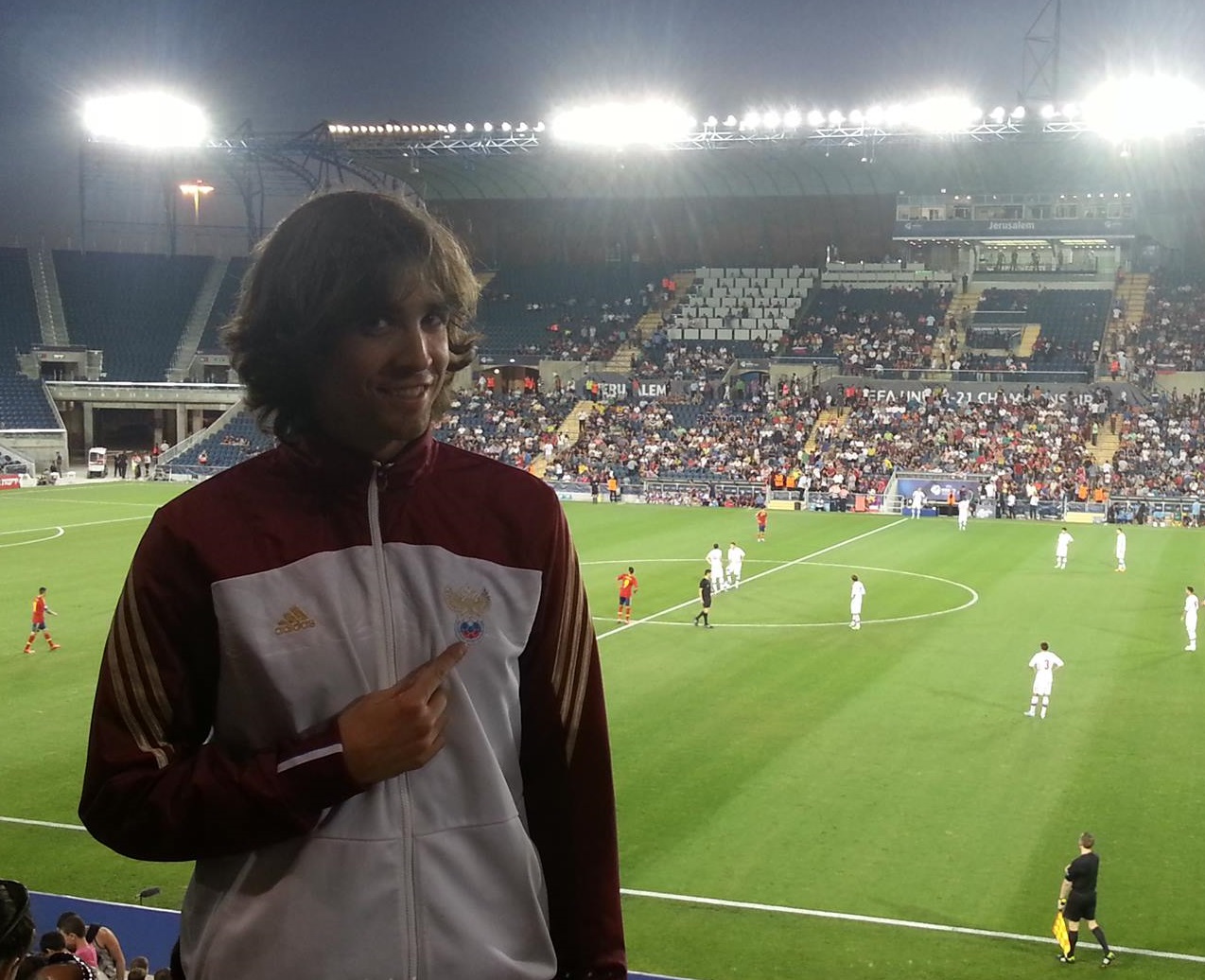“I am looking forward to lecturing live”

Peio Zuazo-Garin, ICEF assistant professor and a PhD graduate from the University of the Basque Country, joined HSE at a time when all the usual formats of research and teaching were disrupted by the pandemic. In an interview he told how to adapt to a new place of work online, what are the pros and cons of academic prestige, why he loves Moscow and why he recalls bullfighting during the discussions with ICEF students.
The first visit to ICEF
I first visited ICEF (and HSE) in March 2018, when Emiliano Catonini, with whom I had previously coincided in many international conferences on economic and game theory, invited me to give a research seminar. The paper I presented was quite specialized, not easily accessible at all; still, a local master student raised very deep and interesting questions and made me have a hard time. I was frankly impressed. A move to ICEF was not something I was considering back then, but after the visit it was obvious to me that ICEF was a place that offered a great environment for research -the question, if any, was whether I’d be able to reciprocate!
Demotivation during lockdowns
And here I am at ICEF. How did I feel? My main feeling has been of… immense frustration!!! I enjoy personal interaction, so lecturing in front of a screen with almost no feedback about how the students were feeling was a little tedious. The good part, if any, is that online teaching forced us to prepare very solid and complete material that will be useful next year, so I am looking forward to using it for lecturing live. Besides, the level of some of the students was quite impressive; I admit that in Spain I could afford being more relaxed in the preparation of the lectures!
Research interests
My research is quite focused on the methodology, rather than on issues related to what we informally consider Economics in daily life. I study the mathematical and conceptual foundation of Game Theory (the mathematical tool we employ in Economics to think formally about interactions between several agents); my contributions to the area consist on providing new tools to introduce uncertainty in a manageable way in our analyses. Personally, I find the appeal of Game Theory to lie in how interdisciplinary it can be; regardless of whether you are (more) interested in Economics, philosophy, pure mathematics, psychology or anthropology Game Theory will probably offer some interesting topic to think about for you.
A big criticism to economic models that rely in Game Theory is that, within the formal frameworks we develop, the different economic agents are usually assumed to know too much about certain subjective traits of the others’ (e.g., preferences over outcomes, appreciation of the environment, appreciation of what others agents appreciate, etc.). Three of my current projects revolve around what can be predicted when these assumptions are relaxed. One relaxes the common appreciation of the payoff-relevant contingencies that affect strategic behavior. Another relaxes that agents are perfectly capable of understanding the logical relations between relevant events. (Both projects are joint with Evan Piermont, from University of London).

A third project (joint with Antonio Penta, from Universitat Pompeu Fabra, in Barcelona) relaxes in a particular way the assumption that players know whether their choices are observable to other agents or not. Together with another work that combines theory and experiments (joint with Francesco Cerigioni and Fabrizio Germano, from Universitat Pompeu Fabra, and Pedro Rey-Biel from ESADE, also in Barcelona), these are the projects I am more active with nowadays.
About the pandemic
There has been a huge influence, but not so much in the focus of my research as in the proportion of time devoted to teaching. As a pure theorist I have little to say about the pandemic, at least in a time in which immediate relief is the main priority. Besides, as mentioned above, the switch to the online format meant the need to prepare adequate material, so I’ve spent endless hours with that --I must admit that I’m not particularly quick at this. So as frustrated as I could feel for having been forced to reduce my time for research, I think that the preparation of the material has been a good investment and will greatly pay off.
What I really missed was the opportunity of meeting my colleagues in person at conferences and seminars due to the moving restrictions. As much as I try, I can’t find any positive aspect of the pandemic in this front…
About ICEF students
ICEF recently held an offline ICEF Academia conference, where I had a great time. As I mentioned before, I was already familiar with how sharp some students at ICEF can be, so it was not surprise that every student was presenting research and findings of their own that approximate the frontier of what we know in Economics and Finance –which is, by no means, what one sees in most universities. But with these kids there is always something that surprises you. In this case I was impressed with the maturity they displayed in handling the questions the faculty members posed, and in dismantling (rightfully so, when it was pertinent) the criticism we raised to their work. I deplore bullfighting and find the following comparison an embarrassing cliché, but I felt skillfully toreador.
About the academic prestige
Top-5 journals represent all the good and bad aspects of elitism and exclusivity. In general, a paper is only accepted at a top 5 if it is a world-class path-breaking piece of research of the highest quality within its own area, to the extent of being somehow appealing to economists working in very different fields (the last part is between folklore and true, but still). Thus, a publication at a top 5 journal represents a life achievement for most of us and lot of prestige for both the researcher and their institution. That being said, valuing outputs in radically different ways often creates injustices with respect to inputs. In this case, the appreciation of two very similar papers can obtain is likely to vary incommensurably if one is published at a top 5 and the other is not (something not so unlikely). Or a paper of great depth and originality can fail to be eligible for a top 5 only because its understanding requires a level of specialization only available to the few researchers working on its very particular subfield. Things seem to work, but I think there exists a concern about the way in which we regard top 5 journals with respect to the rest.

A big difference among the five journals is the extent to which they lean towards theory-focused material or are hostile to it. The last decades of the past century produced massive amounts of certain kind of theoretical output that has not permeated at all into more applied areas so, together with the great advances we’ve recently experienced in data analysis, this has led to a reaction in the interests of the profession.
Life in Moscow
I’d be dramatizing if I complained too much about anything. All my colleagues at ICEF, both administrative staff and faculty members (many of the latter, foreigners of a similar age to mine), have greatly helped to make the adaptation to Russia really smooth. The weather’s worse than in Spain, yes, but I have a better infrastructure than a Napoleonic soldier. IVI doesn’t often allow for English subtitles, yes, but the blame is on me for not learning Russian quickly. A few weeks ago I would’ve told you that every decent Rioja wine is unreasonably overpriced here; but not anymore: now I know where to find a bottle of good, old, Ramón Bilbao.
Moscow offers everything at every time of the day: Art galleries, spectacles, bars, restaurants, green areas… all within a majestic (albeit arguably schizophrenic) architectural environment. If anything, I still can’t help feeling touched every time I take the tram towards Novokutznetskaya at Pokrovskiy, and Saint Basil’s Cathedral appears in the horizon while crossing the Bolshoy Ustinsky bridge –a similar feeling I always had while randomly bumping into Santa María del Mar in Barcelona, or arriving to River North in a L4 train in Chicago. It is priceless that such iconic and overwhelming beauty can be part of your everyday life.
Peio Zuazo-Garin